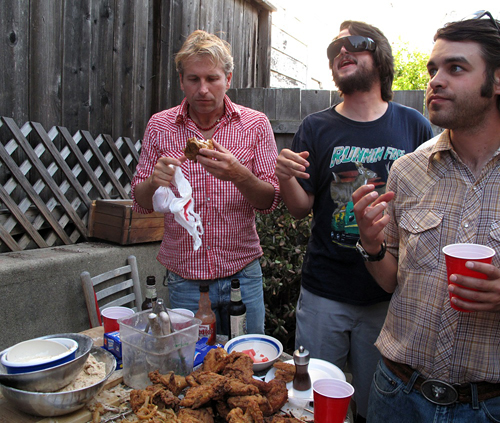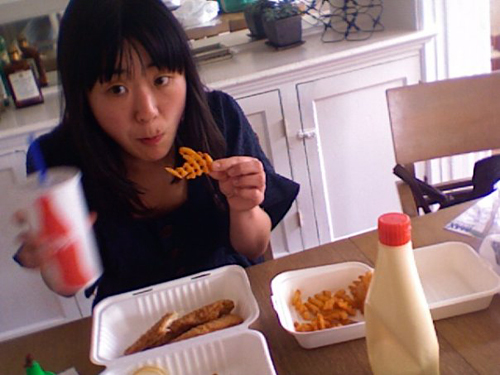Let's say you're at a party, hovering over a gooey white puck of Mt. Tam, canape-concerned, ignoring the guests swirling around you, when a stranger sidles over and sizes you up. "Hey," he says, a wide, knowing grin spreading across his face as he gestures at the cheese-covered knife you're determinedly sliding across a good cracker. "You're a real foodie, aren't you?" "No, I'm just hungry," you say, wincing -- because you hate that word.
You're not alone. To its detractors, the term "foodie" brings to mind Yelp--happy yuppies prone to infantile rhapsodizing on the subject of beloved foodstuffs. Yet to its advocates, the word merely characterizes a commitment to eating well -- less prissy-sounding than "epicure," without the Anton Ego-esque pomposity "gourmand" evokes. According to etymologist Barry Popik, former New York magazine food critic Gael Greene first used it in print in 1980. A few years later, Paul Levy and Ann Barr inserted "foodie" into the title of their book "The Official Foodie Handbook." Since then, it's appeared in countless cookbooks and memoirs, and thoroughly penetrated our vernacular.
A lot of people think arguing about what words mean is a silly preoccupation. Given life's great challenges and the limits clocks and calendars impose, this particular linguistic scrap is not, in the big scheme of things, a fantastic use of time, but if enough people harbor strong opinions about the term's use and meaning, it's by nature worth addressing.
We all know people who truly don't care what they eat, much less where their food comes from, or who makes it. These folks backpack through Europe proudly subsisting on jug wine and potato chips. They eat peanut butter sandwiches for lunch every day. They forget to eat at all unless they're reminded to do so. Food is just fuel, nothing more. Identifying yourself as a "foodie" is a way of saying you're different.
Of course labels define people in overly simplistic and easily adjustable terms. People don't necessarily have a problem with the existence of "foodie," just with its ubiquity and the vague jumble of ever-evolving potential meanings it implies. If you're a "foodie," do you eat for pleasure? Do you talk about food all the time? Do you think eating is a political act? Do you dutifully follow food trends? Are you knowledgeable about food? Are you a fan? An aficionado? An adventurer? Do you spend too much at restaurants? Do you buy organic and local? Do you really have the time to track down every Twittered street food cart in town? "Foodie" may have been conjured up with a positive meaning in mind, but most word configurations ending in "ie" that describe people -- alkie, druggie, yuppie, even hippie -- tend to have disparaging connotations, and this one is no exception.

